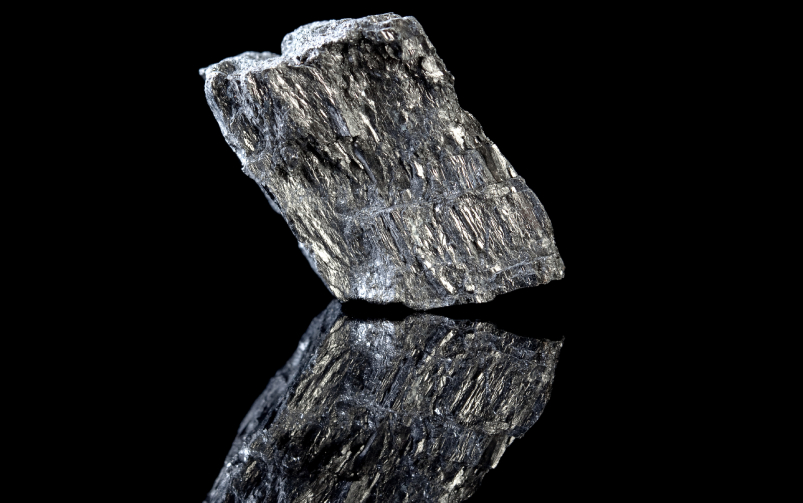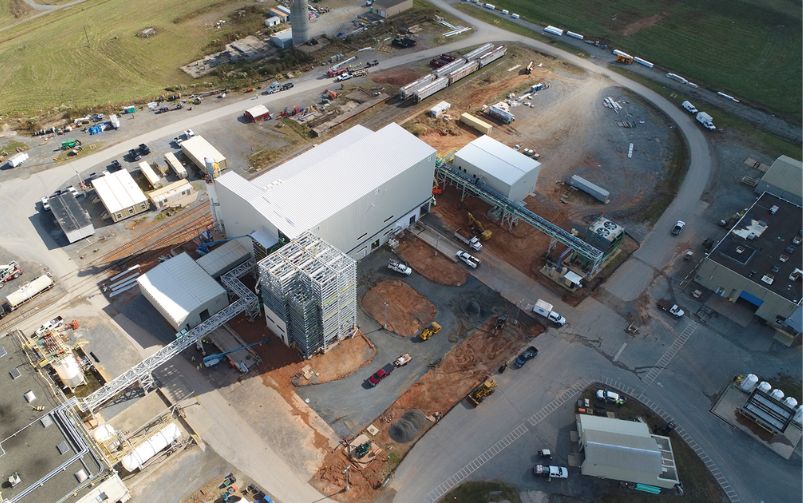Wildfires around Quebec have forced several mining projects to stop operations. Courtesy of Audrey Marcoux, SOPFEU.
Welcome back to your weekly mining news recap, where we catch you up on some of the news you may have missed. This week’s headlines include Indigenous groups launching a lithium refinery study, multiple proposals to buy Teck’s steelmaking coal business and rising labour costs for North American mining companies.
Wildfires in Quebec forced miners to suspend operations last weekend due to road closures and blocked access to forests, as reported by the Financial Post on June 5. On Tuesday, Champion Iron announced service was interrupted at its railway transporting high-purity iron ore concentrate from its Bloom Lake mine to the port of Sept-Îles. On Thursday, Wesdome Gold Mines Ltd. announced it had suspended underground activities and surface exploration activities at the Kiena Mine in Val d’Or. Several other miners were forced to suspend operations due to the wildfires, including Hecla Mining, Iron Ore Company of Canada and Agnico Eagle Mines, as reported by Reuters on June 6.
Teck Resources said it has received several proposals for its steelmaking coal business, according to a Tuesday press release. Teck stated it is still planning to pursue a separation of its steelmaking coal and base metals businesses to unlock its copper growth business. Teck said there was nothing material to disclose at the moment, and did not name the interested parties nor state if any of the offers were from Glencore, the latter of which said in May it is willing to increase its offer to merge the two companies.
Suncor, the world’s largest oil sands producer, announced in an email to staff last Thursday that the company would eliminate 1,500 positions to trim $400 million from its budget by the end of this year, as reported by the CBC. Suncor said it needs to reduce staffing costs relative to its competitors in the oilpatch and that layoffs, which will occur at all levels of the company, will be based on both performance and business need. Rich Kruger, Suncor’s CEO, had pledged to cut costs at the company when he took on the job in April of this year. In the first quarter of 2023 Suncor’s costs per barrel of oil were higher at all its oil sands operations as compared to Q1 in 2022.
Labour costs will soon surpass fuel costs as the biggest expense of operating mines, as reported by The Northern Miner. Data from Costmine Intelligence, a unit of The Northern Miner Group, showed that in Canada and the U.S., wage cost increases ranged from five per cent to 12 per cent in 2021, and that salaried staff saw similar increases. The data showed that until 2021, wage cost increases had largely matched inflation. By comparison, major capital costs like haul trucks have stayed relatively stable.
Newmont Corporation announced on Thursday it has suspended operations at its Peñasquito gold mine in Zacatecas, Mexico. The suspension comes after unionized workers notified Newmont they would take strike action over their profit-sharing agreement with the company. The union is calling for an increase of profits shared under the Collective Bargaining Agreement (CBA) from 10 per cent to 20 per cent. Newmont stated in a press release: “Prior to the strike action, Newmont attempted, in good faith, to resolve disputes regarding the provisions in the CBA, negotiated and signed by both parties for the period of June 2022 through June 2024.” Newmont added it will continue to engage with the union to reach a resolution in accordance with the CBA.
Family and supporters of Mariano Abarca, a Mexican mining activist killed in 2009 after opposing a project by Calgary-based mining company Blackfire Exploration Ltd., are taking their case in front of an international human rights body, as reported by The Canadian Press. The complaint alleges that members of the Canadian Embassy in Mexico pressured authorities in the country to advance the mining project, despite knowing about threats to Abarca’s life related to the project, thereby failing to uphold its international human rights obligations. Abarca was leading protests against a Canadian-owned barite mine in Chiapas, Mexico, after it opened in 2007, and was beaten and received death threats before he was shot and killed outside his home in November 2009.
Minodahmun Development LP and Three Fires Group, two Indigenous economic developments groups based in Ontario, are joining forces to advance the concept of a lithium refinery, as reported by Northern Ontario Business. The two groups have started a feasibility study for a lithium processing facility, which would convert Northern Ontario-mined lithium into battery-grade lithium, a commodity in high demand from automakers on the path to electrification. The study is set to be completed by the end of the year and if it is successful, the facility could be operational by 2027, the two groups stated on Tuesday in a joint press release.
Ontario has launched a mining safety inspection campaign, which will last until March 2024, to ensure that workplaces are keeping miners safe, as reported by Northern Ontario Business. Jennifer Rushby, a spokesperson for the Ministry of Labour, Immigration, Training and Skills Development, told Northern Ontario Business that mining inspectors will be visiting open-pit and underground mines, along with surface plants and refineries, to ensure that employers are complying with the Occupational Health and Safety Act and that employees are properly trained and accredited.
The key to Canada’s success in building a critical mineral supply is by prioritizing Indigenous partnerships and values in the net-zero transition, according to a new report from The First Nations Major Projects Coalition. During two critical mineral roundtables that took place over the past year, experts from First Nations, the private sector and the public sector discussed how mining projects centered around Indigenous values like equity ownership and environmental protection are important to the success of major critical mineral projects getting approved and built. The Critical Mineral Roundtable Report highlighted how First Nations participation in all elements of the critical mineral supply chain could lead to economic growth, environmental stewardship and social responsibility.
Cambrian College has received an equipment donation from global mining supplier Sandvik, which included an A4 battery-operated loader with an associated battery pack assembly and charger, as well as four battery modules to support training, as reported by Canadian Mining Journal. The equipment will support activities in Cambrian’s new Battery Electric Vehicle (BEV) lab, which is currently under construction and anticipated to open in the fall.
That’s all for this week. If you’ve got feedback, you can always reach us at editor@cim.org. If you’ve got something to add, why not join the conversation on our Facebook, Twitter, LinkedIn or Instagram pages?




